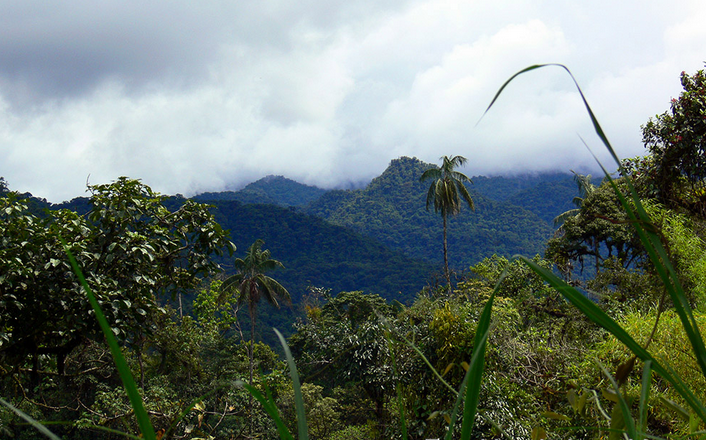(单词翻译:单击)
Even now nearly a quarter of all prescribed medicines are derived from just forty plants, with another 16 percent coming from animals or microbes, so there is a serious risk with every hectare of forest felled of losing medically vital possibilities. Using a method called combinatorial chemistry, chemists can generate forty thousand compounds at a time in labs, but these products are random and not uncommonly useless, whereas any natural molecule will have already passed what the Economist calls "the ultimate screening programme: over three and a half billion years of evolution."
即使现在,差不多四分之一的全都处方药来自仅仅40种植物,还有l6%来自动物或微生物,因此每砍伐l0万平方米森林,失去重要的药用发展前途的风险就增加一分。化学家们使用一种名叫组合化学的方法,在实验室里一次可以产生出4万种化合物,但这些产品是规格不一的,没有多大用处,而自然界的每个分子都已经经过《经济学家》杂志所说的“最终的审查过程:35亿多年的进化”。
Looking for the unknown isn't simply a matter of traveling to remote or distant places, however. In his book Life: An Unauthorised Biography, Richard Fortey notes how one ancient bacterium was found on the wall of a country pub "where men had urinated for generations" — a discovery that would seem to involve rare amounts of luckand devotion and possibly some other quality not specified.
然而,寻找未知的东西不完全是一件要去偏僻或遥远地方的事情。在《生命:一部未经授权的传记》一书中,理查德·福泰指出,有一种古老的细菌是在一家乡村酒店的墙上发现的,“世世代代的男人都在那儿撒尿”——这一发现似乎包含几个因素:罕见的运气和专心,可能再加上某种别的没有明确的因素。
There aren't enough specialists. The stock of things to be found, examined, and recorded very much outruns the supply of scientists available to do it. Take the hardy and little-known organisms known as bdelloid rotifers. These are microscopic animals that can survive almost anything. When conditions are tough, they curl up into a compact shape, switch off their metabolism, and wait for better times.
专门人才不足。需要发现、研究和记录的东西实在太多,干这活儿的科学家供不应求。以名叫吸螨的那种生命力很强而又鲜为人知的微生物为例,那种微生物几乎可以在任何环境里生存。条件恶劣的时候,它们就缩成一团,关闭新陈代谢系统,等待好的年景。


